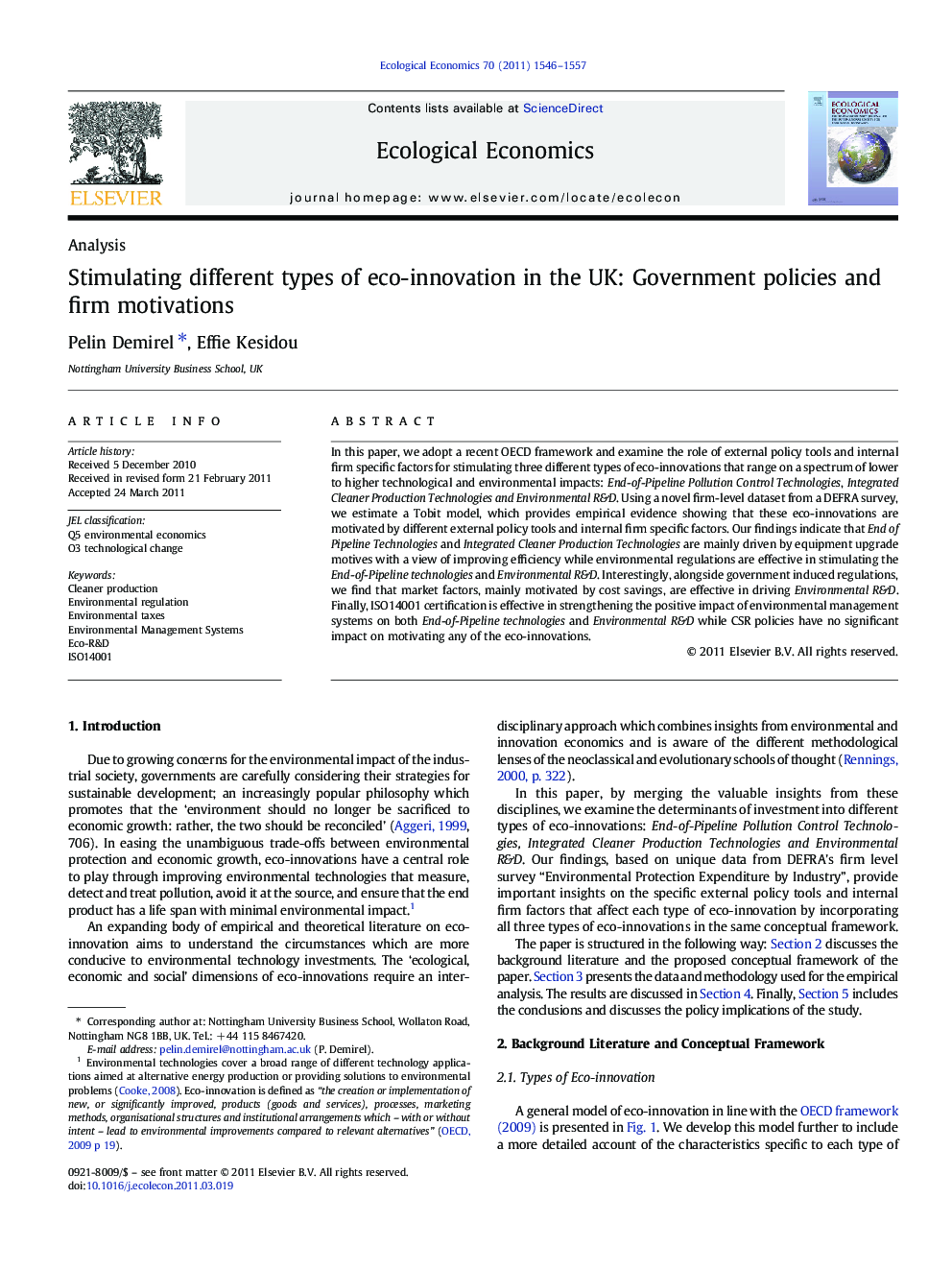| Article ID | Journal | Published Year | Pages | File Type |
|---|---|---|---|---|
| 5050540 | Ecological Economics | 2011 | 12 Pages |
In this paper, we adopt a recent OECD framework and examine the role of external policy tools and internal firm specific factors for stimulating three different types of eco-innovations that range on a spectrum of lower to higher technological and environmental impacts: End-of-Pipeline Pollution Control Technologies, Integrated Cleaner Production Technologies and Environmental R&D. Using a novel firm-level dataset from a DEFRA survey, we estimate a Tobit model, which provides empirical evidence showing that these eco-innovations are motivated by different external policy tools and internal firm specific factors. Our findings indicate that End of Pipeline Technologies and Integrated Cleaner Production Technologies are mainly driven by equipment upgrade motives with a view of improving efficiency while environmental regulations are effective in stimulating the End-of-Pipeline technologies and Environmental R&D. Interestingly, alongside government induced regulations, we find that market factors, mainly motivated by cost savings, are effective in driving Environmental R&D. Finally, ISO14001 certification is effective in strengthening the positive impact of environmental management systems on both End-of-Pipeline technologies and Environmental R&D while CSR policies have no significant impact on motivating any of the eco-innovations.
Research Highlights⺠Unique UK firm level data from DEFRA survey. ⺠The role of policy tools and firm specific factors in stimulating eco-innovations. ⺠Uses Tobit model and a further decomposition of marginal effects.
